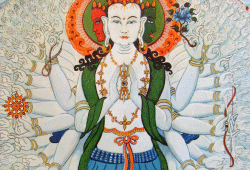  |
|
|
(About Apartheid: In South Africa, apartheid was invented by the ruling National Party as a means to cement their control over the country�s economic and social systems. Its aim was to maintain white domination while extending racial separation. With the enactment of apartheid laws in 1948, racial discrimination was institutionalized. Race laws touched every aspect of social life, including a prohibition of marriage between non-whites and whites, and the sanctioning of "white-only" jobs. In 1950, the Population Registration Act required that all South Africans be racially classified into one of three categories: white, black or colored (mixed decent). Starting in the 60's, a plan of "Grand Apartheid" was executed, emphasizing territorial separation and police repression. After much struggle and tragedy, apartheid in South Africa officially ended in April of 1994.) Although he wanted to become a physician, his family could not afford the training and he followed his father's footsteps into teaching. Tutu studied at the Pretoria Bantu Normal College from 1951 through 1953. Tutu went on to teach at Johannesburg Bantu High School where he remained until 1957; he resigned following the passage of the Bantu Education Act, protesting the poor educational prospects for black South Africans. He continued his studies, this time in theology, and in 1960 was ordained as an Anglican priest. In 1986 Tutu was elected and ordained the first black South African Anglican Archbishop of Cape Town, South Africa, and primate of the Church of the Province of Southern Africa, South Africa's church body comprising the worldwide Anglican Communion. He was awarded the Nobel Peace Prize in 1984. After the fall of apartheid, he headed the Truth and Reconciliation Commission, for which he was awarded the Sydney Peace Prize in 1999. He is generally credited with coining the term "Rainbow Nation" as a metaphor to describe post-apartheid South Africa after 1994 under ANC rule. The expression has since entered mainstream consciousness to describe South Africa's ethnic diversity.
Quotes "Be nice to the whites, they need you to rediscover their humanity." "You don't choose your family. They are God's gift to you, as you are to them." "When the missionaries came to Africa they had the Bible and we had the land. They said 'Let us pray.' We closed our eyes. When we opened them we had the Bible and they had the land." "In our African language we say 'a person is a person through other persons.' I would not know how to be a human being at all except I learned this from other human beings. We are made for a delicate network of relationships, of interdependence. We are meant to complement each other. All kinds of things go horribly wrong when we break that fundamental law of our being. Not even the most powerful nation can be completely self-sufficient." "I am opposed to both the violence of those who maintain an unjust system and the violence of those who seek to overthrow it."
Links Desmond Tutu's page at the Nobel Prize website: http://nobelprize.org/nobel_prizes/peace/laureates/1984/tutu-bio.html The Desmond Tutu Peace Centre: http://www.tutu.org> From the Wikipedia: http://en.wikipedia.org/wiki/Desmond_Tutu The Tutu Foundation UK: http://www.tutufoundationuk.org
|
|
The Chenrezig Project Snohomish County WA; Central Florida Tel: (206) 707-9944 info@chenrezigproject.org © 2006, 2015. The Chenrezig Project. All rights reserved. |
 The Most Reverend Desmond Mpilo Tutu is a South African cleric and activist who rose to worldwide fame during the 1980s as an opponent of apartheid.
The Most Reverend Desmond Mpilo Tutu is a South African cleric and activist who rose to worldwide fame during the 1980s as an opponent of apartheid.